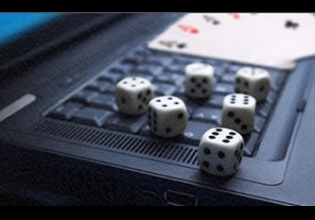
Not happy to take a draw during the competition in 2015, the brainiacs at Carnegie Mellon University have decided to challenge humanity once again on a battlefield perfect for determining future world domination – the poker table.
Starting on January 11, the Carnegie Mellon University School of Computer Science and four poker professionals – Jason Les, Dong Kim, Daniel McAulay and Jimmy Chou – will once again battle on the virtual felt in the “Brains vs. Artificial Intelligence: Upping the Ante” competition. Over the next 20 days (starting at 11AM and concluding at 7PM), each human player will play heads-up no limit Texas Hold’em against a new opponent, the brainchild of the programmers at Carnegie Mellon. Named “Libratus” (perhaps a derivative of the name of the Roman goddess Libertas, or “liberty,” or perhaps a name indicating balance (Libra), this computer program has been in development since 2015, when the Carnegie Mellon/Poker Pro battle was last waged.
The guidelines of the action have a few tweaks over the previous competition’s brilliant format. For the 2017 version, two matches will be played simultaneously online – one human player will be on the floor of the Rivers Casino in Pittsburgh, one human player in an isolated room away from that action. Along with the extended time frame (the 2016 competition lasted only 14 days), this will allow the extra hands to be played and should allow for a more definitive answer as to who wins the match. At stake is a $200,000 payout (an improvement over the $100,000 offered in 2015).
Carnegie Mellon has put a great deal of effort into “Libratus” to make sure the AI is at its best for the competition. For the 2015 battle, the Carnegie Mellon computer called “Claudico” was pre-programmed with three million hours of computation to base its decisions on. “Libratus” will get five times that amount (15 million hours) and has been adjusted for some of the “tells” that humans noticed from “Claudico” in the 2015 competition. All of this has the Carnegie Mellon people very confident about their chances.
Tuomas Sandholm, a professor at Carnegie Mellon who, along with Ph.D. student Noam Brown, created “Libratus,” explained in the school’s press release the importance of the “Brains vs. Artificial Intelligence” competition. “Since the earliest days of AI research, beating top human players has been a powerful measure of progress in the field,” Sandholm said. “It was achieved with chess in 1997, with Jeopardy! in 2009 and with the board game Go just last year.”
“Poker poses a far more difficult challenge than these games, as it requires a machine to make extremely complicated decisions based on incomplete information while contending with bluffs, slow play and other ploys,” Sandholm concluded. The development of such computers – and their ability to make complex decisions rapidly – has an application to the benefit of mankind in that the AI can be used in medical analysis, the military, cybersecurity, and other business applications.
In the 2015 competition, Les and Kim were joined by fellow poker professionals Bjorn Li and World Series of Poker bracelet winner Doug ‘WCGRider’ Polk in taking on “Claudico.” Over the span of 80,000 hands, the foursome was able to defeat the computer to the tune of $732,713, with Li racking up $528,033 of that amount, Polk picking up $213,671 and Kim earning slightly more than $70,000. Les will be the one looking for revenge as, in 2015, he was the only human to “lose” to “Claudico” by the amount of $80,482.
Despite the gaudy dollar figure, the overall match was considered a draw because of the relatively low number of hands played in the competition. In addition, Li was the only player who could be said to have thoroughly beaten the computer, with the Polk and Kim individual matches more in the “tie” column and Les’ battle a close loss. The extra 40,000 hands for the 2017 competition will either show more of an advantage for the humans or will bring the AI and the humans closer together in the final totals.
Can the humans withstand the assault by “Libratus” or will we finally succumb to our robot overlords? With the “Brains vs. Artificial Intelligence: Upping the Ante” competition, we will have more fuel for the fire by the end of the month.
























How do they call last year’s match a tie, when the humans won at a rate of 9bb/100 hands. TIE?????
Hey dbo,
Both sides considered it a tie because, in their viewpoint, 80,000 hands wasn’t enough of a sample size to determine an outright victor. That is why this year’s competition is expanded to 120,000 hands (not sure myself why the extra 40K hands makes a difference). If the same outcome happens, then you have better evidence and can make a more concrete conclusion.
Thanks for reading!
EB